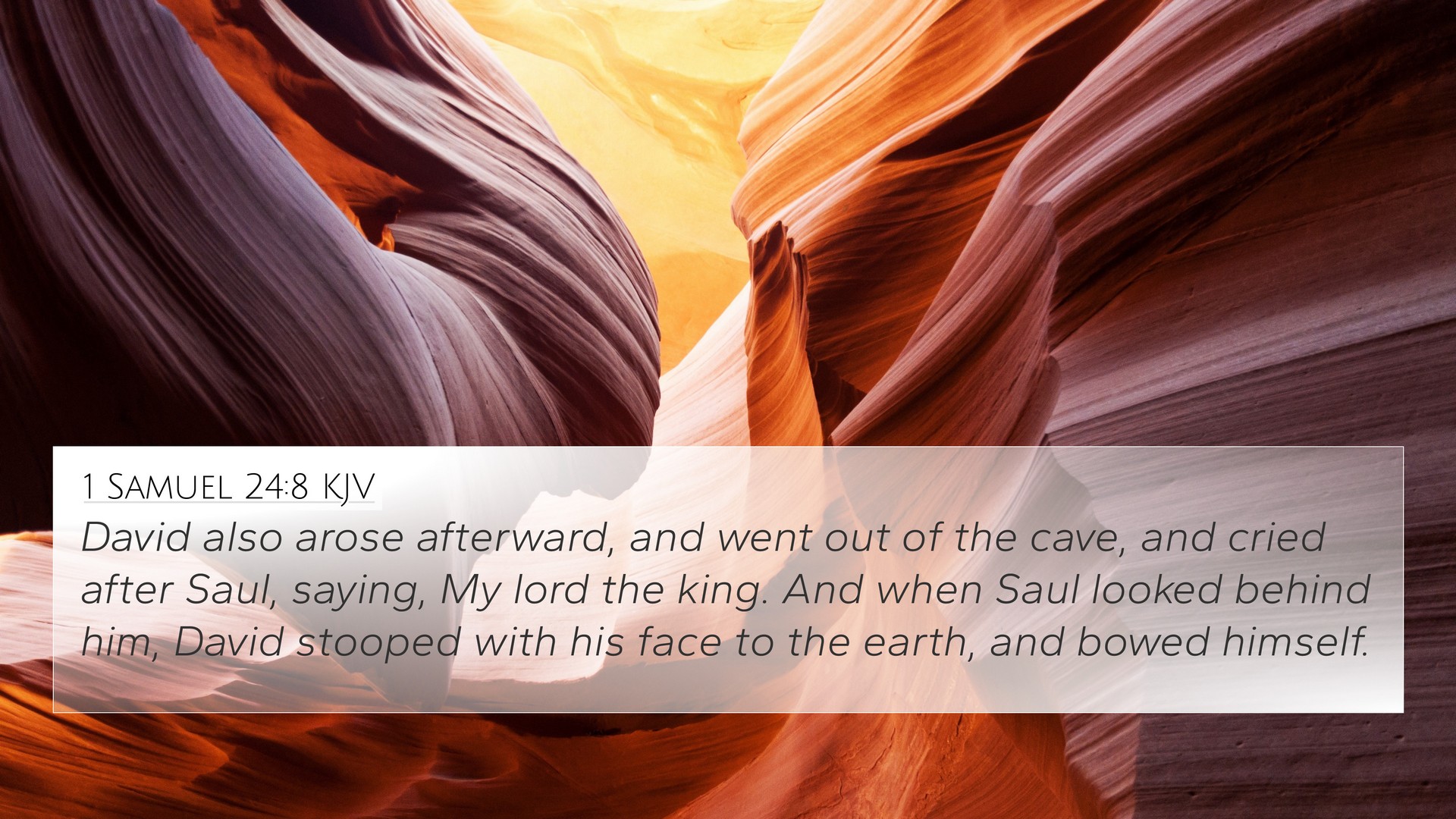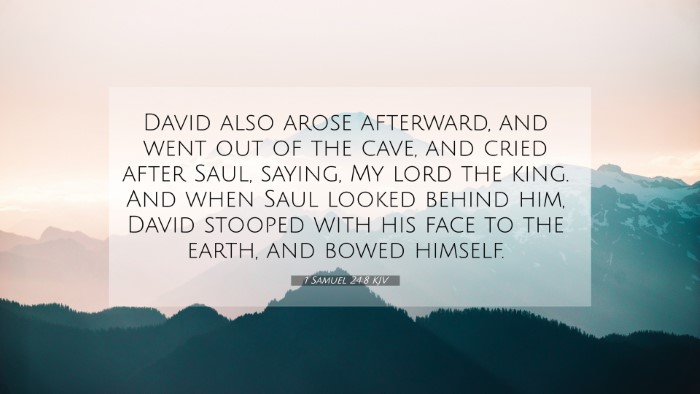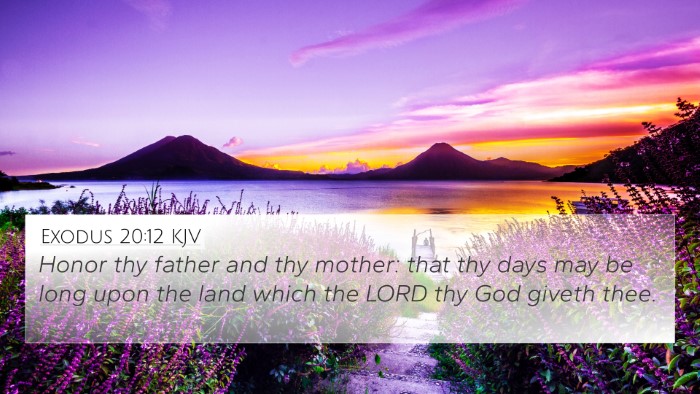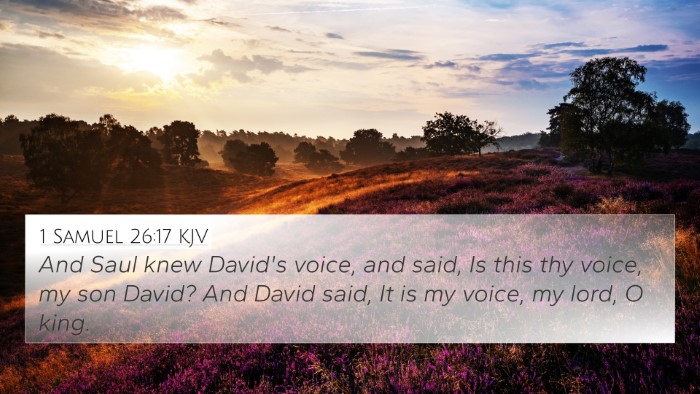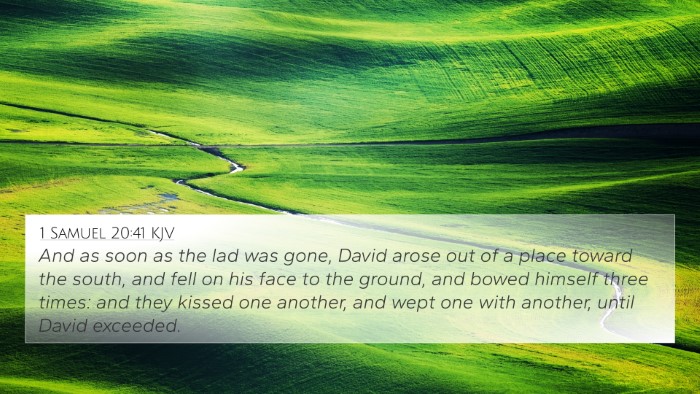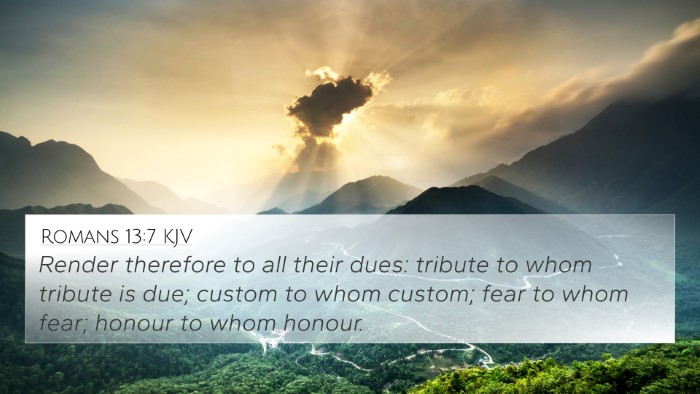Understanding 1 Samuel 24:8
1 Samuel 24:8 stands as a poignant moment in the narrative of David's rise amidst the pressures of Saul's relentless pursuit. The verse captures a significant encounter that reflects on themes of mercy, power, and divine providence.
In this context, the verse reads:
"David also arose afterward, and went out of the cave, and cried after Saul, saying, My lord the king. And when Saul looked behind him, David stooped with his face to the earth, and bowed himself." (1 Samuel 24:8, KJV)
Contextual Overview
This passage occurs when David, hiding in the cave of Adullam, finds Saul who has unknowingly entered the cave seeking relief. Instead of taking vengeance, David spares Saul's life, showcasing his integrity and faith in God’s timing.
Commentary Insights
-
Matthew Henry:
Henry emphasizes the importance of David's restraint. He notes that this act was not merely about avoiding murder but marked a deeper trust in God's sovereign plan. David’s approach to Saul after sparing his life reflects a heart that seeks reconciliation over conflict.
-
Albert Barnes:
Barnes highlights the significance of David's respectful address to Saul, referring to him as "my lord the king." This respectful tone underscores the concept of kingship and the profound respect David maintains for Saul, despite being wronged. Barnes connects David’s humility with the Biblical principle of honoring authority.
-
Adam Clarke:
Clarke indicates the psychological impact of David's actions on Saul, suggesting that by bowing down, David acknowledges Saul's current authority even as he has been divinely chosen to succeed him. This act serves as a reminder of God’s choices and the transient nature of power.
Thematic Connections
This passage resonates with broader Biblical themes:
- Mercy vs. Vengeance: David embodies the principle of mercy in the face of potential vengeance.
- Sovereignty of God: Trusting in divine timing rather than personal action to resolve conflict.
- Respect for Authority: Acknowledging the divine placement of leaders, even those who may act unjustly.
Cross-References
1 Samuel 24:8 connects with various other scripture passages, highlighting inter-biblical dialogue on themes of mercy and authority. Key cross-references include:
- Romans 12:19 - "Vengeance is mine; I will repay, saith the Lord."
- Matthew 5:39 - "But I say unto you, That ye resist not evil: but whosoever shall smite thee on thy right cheek, turn to him the other also."
- 1 Peter 2:17 - "Honor all men. Love the brotherhood. Fear God. Honor the king."
- Proverbs 25:21 - "If thine enemy be hungry, give him bread to eat; and if he be thirsty, give him water to drink."
- Luke 6:27 - "But I say unto you which hear, Love your enemies, do good to them which hate you."
- 2 Samuel 1:14-16 - David mourns Saul’s death, reflecting on his respect for him.
- Psalm 105:15 - "Touch not mine anointed, and do my prophets no harm."
Conclusion
In summary, 1 Samuel 24:8 serves as a profound lesson in humility, respect, and faith amidst trials. It encourages believers to trust in God's plan while exhibiting mercy towards others, even those who may seem adversarial.
This reflection can aid those exploring the connections between Bible verses through tools for Bible cross-referencing and guides for comprehensive Bible study. Such resources enhance understanding of Biblical themes and principles, identifying relationships between Old and New Testament scripture.
